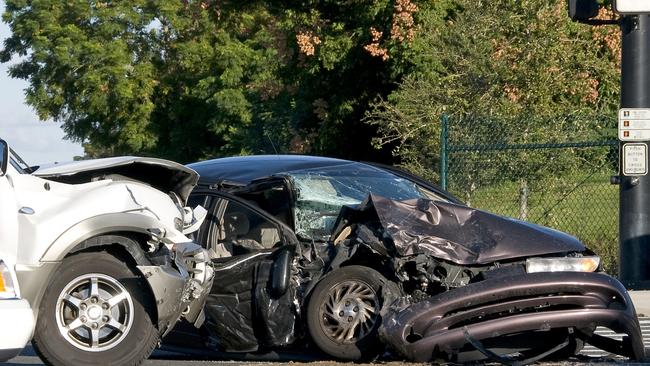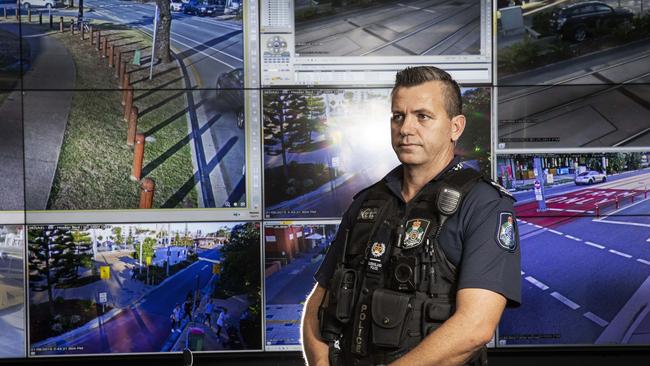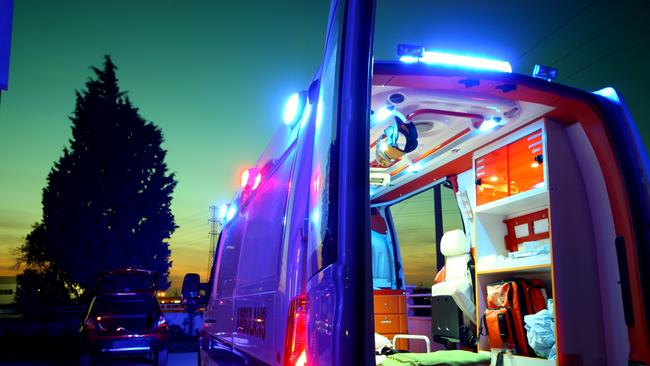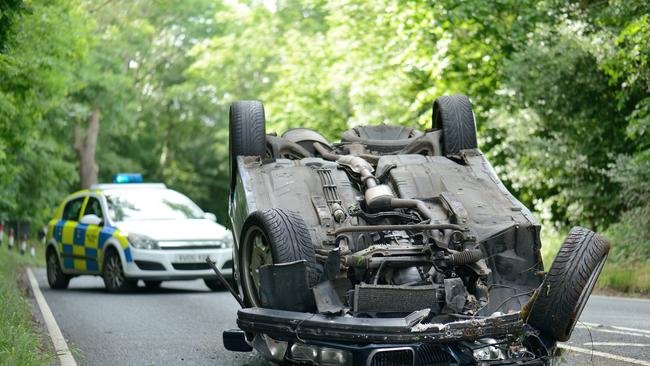KNOCK, KNOCK, KNOCK
You’ve just gone to bed, it’s late, ‘who’s knocking on the door at this hour’, you wonder.
You saunter to the door and peer through the keyhole. On the other side you see a couple of police officers. Their heads are down and they’re shuffling their feet.
You don’t know it yet, but they are there to turn your life upside down, to deliver the hardest news imaginable. Your son/daughter/wife has died in a horrific crash.
You lash out at the officers, you tell them they’re wrong. It can’t be your loved one, there’s been a mistake.
THE PAIN OF LOSING LOVED ONES
Two dead from frightening crash, delays expected on Beaudesert Town Centre Bypass
Marnie Zuk, Jamie Hunter, and Bryton Thompson tragically killed in two-car crash at Upper Coomera
Man charged after pair allegedly flee fatal M1 crash near Tweed
The officer does his best to help you through the news that the life you lived 10 seconds before opening the door will not be the same ever again.
District Duty Officer (DDO), Senior Sergeant Chris Tritton has stood at the doorstep and knocked on the door. He’s delivered the news and seen unimaginable grief.
“The part that takes the toll is addressing the family and seeing their reactions to it. That’s when it hits home to you and you reflect on your own family and if it could have been a situation that affected yourself,” he says.
“I’ve seen the worst of it.

“One minute to be in bed and then to get a knock at the door and trying to comprehend it, and often not wanting to believe what we’re saying. They’re saying we’re lying, we’ve got the wrong person. That’s the hardest part, to see that is tough.”
DEALING WITH THE PAIN
Tritton says sometimes the grief for parents is too much.
“In the last 12 months I had to go and deliver a message to a mother and father and they were so traumatised they couldn’t get to the hospital,” Tritton says.
“I was driving them there and along the way, the mum has realised what has happened and her body just rebooted. She went from absolute trauma and went quiet for a little while, in the back seat and her husband was with her.
MORE COAST NEWS
Beaudesert man killed in double-fatal crash mourned as ‘second dad’
The story behind Helensvale State School principal’s ‘baptism by fire’
“I asked if she was OK and she sort of come to and was laughing that she was in a police car. She was asking her husband what he had done, her whole brain just rebooted.
“She couldn’t deal with the trauma, almost as a protective mechanism it shut her down, because she couldn’t deal with the stress.
“It really is that bad for the families.”
Sen-Sgt Tritton said he was working when four people were killed at the Advancetown crash last month.
“The multiple fatal we had at Advancetown, I was in the DTAC (co-ordination centre) and had to, from the names of the victims, find family members, and when you have to go through Facebook and social media to try and find relatives that weren’t on the police system.
“You are seeing these vibrant lives, who have so much ahead of them and knowing that I’ve now got to send police cars all over the state to go and ruin these families.
“It was Sunday around 6pm, probably while they’re cooking dinner, they are about to get a knock on the door from police.
“That’s the toll.”
HOW THE PAIN FILTERS DOWN
The toll isn’t just on the family of the deceased, the ripple effect is wide and can be long-lasting.
Sen-Sgt Tritton says some of those door knocks haunt police officers. Each man on the ground comes up with their own way to deal with the situation.

“The way I get through those things is think of it as a job. You can’t put your mind into the thoughts of that person before they passed, or their family.
“You sort of dehumanise them. Some people might get upset when they watch the news and they see police standing around, they’ll be smiling, because it’s the only way we can get through it.
“Taking ourselves away from it, it is a very upsetting thing, you should never think that the police who are there aren’t upset, it’s just, you have got to find something away from the job to talk about.
“You wouldn’t get through five years of doing the job, let alone a full career if, for every person, you put yourself too much in there. You have to create a bit of a barrier, otherwise it will build up on you.”

He says being in a family full of cops and having a wife who is a nurse has helped him work through what he sees daily.
“It’s a bit different when you go home and talk to your family and let yourself empathise, but if you’ve got a good network to talk to, I’m very lucky, because I’ve got a wife who’s a nurse and I’m the fifth of my family who is in the police. My father and two sisters, as well as a brother-in-law, so when we’re talking, I know that they actually know what I’m going through. It’s not just an empty sympathy. Unless you’ve experienced it, you’re just trying your best to empathise with someone.”
COLLATERAL DAMAGE
Although he has coped throughout his career, he can’t help but wonder when he will be affected by it.
“I haven’t had any affects of PTSD, but it’s unfortunately one of those things you’re always wondering, ‘when is it going to get me? It must be coming around, is it this job?’
“You see so many colleagues and people fall to the black dog (depression), it’s always in the shadow.
“You start to question yourself. Am I just cold, how come I haven’t had issues with going to see this? But I know with myself, I’ve got a good network and have good resilience and mechanisms to deal with it.
“You always have to appreciate there is a lot of good. We come across the really bad side of society, but you have to get out there and be involved in volunteer things or whatever to make it worth what we do.”
He’s appealed to everyone to think about who their death would ruin, to think about the ripple effect.

“Drive to the conditions. Slow down. Give yourself distance. I think we take for granted our own driving ability and next thing you know people are in a situation where they are in a situation and can’t get out of it, and we see the worst of that.
“On top of that then there are the people who are just completely reckless and treat the road like a theme park. They might do that everyday going home, but it just takes one accident and that’s it.
“This year, we’ve had to go to some really sad situations and it’s mounting on police. These additional fatalities we’ve gone to, it’s tough.”
